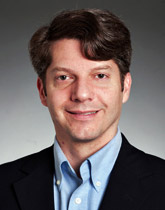
Alex John London had just wrapped up a presentation on human rights and international research in Washington, D.C., when he received an intriguing lunch invitation. Tom Parsons, the director of forensic science for the International Commission on Missing Persons (ICMP), wanted to talk about their shared interest in ethical issues related to forensics.
London, an associate professor of philosophy and the director of the Center for Ethics and Policy at Carnegie Mellon, focuses his work on ethical issues in using human subjects for research. He had just been asked to participate in a grant addressing DNA use in post-conflict and post-disaster situations. Parsons' work focuses on identifying victims of such events. Over lunch, he told London that the committee was looking for an ethicist for the Steering Committee on Forensic Science Programs for the ICMP. The organization was founded in 1996 at the initiative of former U.S. President Bill Clinton to identify the remains of some 40,000 Bosnians, many of whom were buried in mass graves during ethnic conflicts in the Balkans. Today, nearly 70% of the missing have been identified, and the ICMP has worked to recover and identify remains in other mass-casualty situations, such as the Asian tsunami of 2004 and Hurricane Katrina in 2005.

As the ICMP applies the latest forensic technology to a wide variety of new situations, it relies upon advice from its international steering committee. Along with London, who recently agreed to be its ethicist, the panel includes anthropologists, pathologists, and geneticists. London provides insights on such issues as maintaining the privacy of DNA databases, which contain reference samples from living relatives.
-Susan Jacobs Jablow



